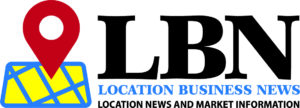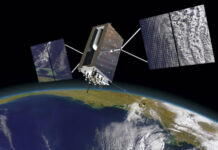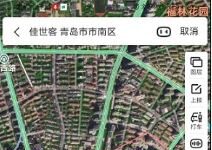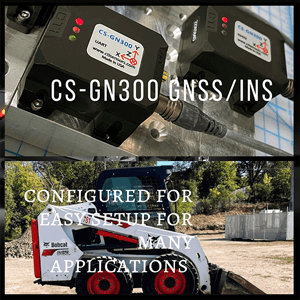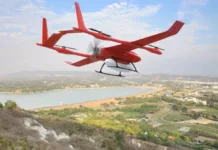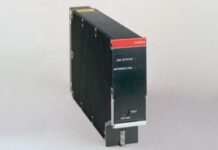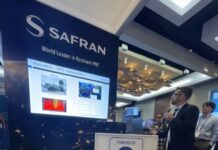BARCELONA—While the annual Mobile World Congress here has never been known as an auto show, the lack of automakers and digital map companies exhibiting stood out. In terms of mapmakers, always the cornerstone of the location industry, not one of the “biggies” (HERE Technologies, TomTom, Mapbox) exhibited.
One analyst believes the reason is that there are uncertainties in the world of car connectivity—and European Commission regulations and policies have been fostering this unsettling trend. “Four or five years ago multiple car companies had booths at MWC including Mercedes, Audi, Volkswagen, and many others. The GSMA, which organizes the event, was at the height of its relevance to the auto industry. Today, the GSMA is struggling to define a clear leadership position and MWC has devolved into more of an eco-system event for automotive connectivity suppliers,” said industry expert Roger Lanctot, in a LinkedIn column.
Lanctot said that such organizations as the 5G Automotive Association (5GAA) and its members have tried to sort out “sticking points and overcome or resolve various concerns and objections over spectrum and protocols” that are caused by the EC.
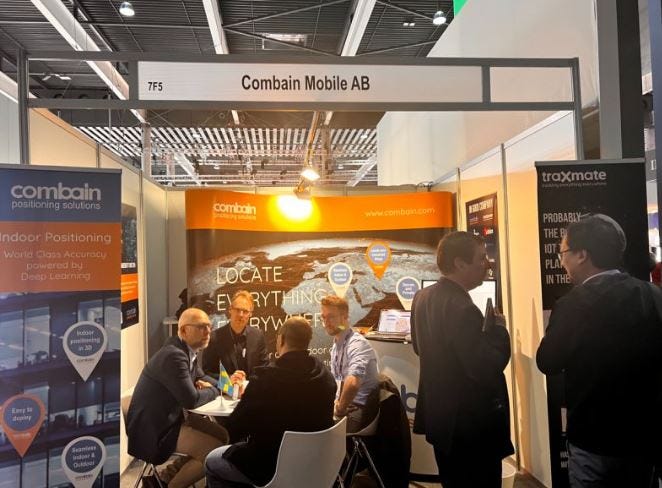
Still, there were a few auto announcements at MWC. Qualcomm QCOM -0.58%↓ rolled out its Snapdragon Automotive 5G Platform and Cisco CSCO -0.08%↓ announced that it was working with Mercedes-Benz to equip new E Class vehicles with Webex Meetings and Calling. The company said the new vehicles, equipped with Wi-Fi and cellular data connection, will be the new home office.
While no mapping company gave a reason why they were not exhibiting at MWC, a HERE Technologies spokesperson pretty much said it wasn’t a priority. “HERE has joined the industry in calibrating its presence at global trade conferences, including MWC, since the start of the pandemic. Today, HERE engages with customers and the industry across multiple physical and virtual settings, such as CES 2023, but also smaller scale events throughout the year,” the spokesperson said.
This year’s Mobile World Congress, which is now called just MWC by its organizers, focused on 5G acceleration, immersive technology and radio access networks.
While there were not a lot of mapping companies at MWC, some location companies made announcements. Radisys launched its ReachPoint network-based geolocation platform that allows Mobile Network Operators (MNOs) to deliver services capable of reaching places where GPS may not be available, such as inside tall buildings, the company said.
IoT asset management continues to be a strong market for exhibitors at MWC. Telit Cinterion announced its global rebranding at MWC that emphases the company’s growing position in the IoT marketplace. The company also launched 5G LPWA modules for smart metering, asset tracking, telematics and other markets.
The modules, which feature Sony’s ALT1350 chipset support Wi-Fi scan and GNSS to maximize technologies for indoor and outdoor positioning applications such as tracking high-value medical equipment around a hospital campus, the company said.
Semtech’s Sierra Wireless also used uses Sony’s Altair ALT1350 chipset for its latest HL Series LPWA module, the 5G HL7900, for the LPWA IoT market.
Taoglas Purchased By Graham Partners
Antenna and IoT component manufacturer Taoglas exhibited GNSS antennas and other solutions at MWC. However, the big news was its acquisition by private investment firm Graham Partners, which is taking a majority ownership.
The company said the deal will support Taoglas’ expansion of in-house RF engineering and design, new product development, sales channels and customer base across many IoT industries, including mobility, infrastructure, transportation, medical, industrial and smart city verticals.
Co-Founder and CEO Dermot O’Shea will continue to lead the company. However, the company said that co-founder and CEO, Ronan Quinlan, will be exiting the company to lead Superfly, a new smart recycling venture.
IoT asset management continues to be a strong market for exhibitors at MWC. Telit Cinterion announced its global rebranding at MWC that emphases the company’s growing position in the IoT marketplace. The company also launched 5G LPWA modules for smart metering, asset tracking, telematics and other markets.
The modules, which feature Sony’s ALT1350 chipset support Wi-Fi scan and GNSS to maximize technologies for indoor and outdoor positioning applications such as tracking high-value medical equipment around a hospital campus, the company said.
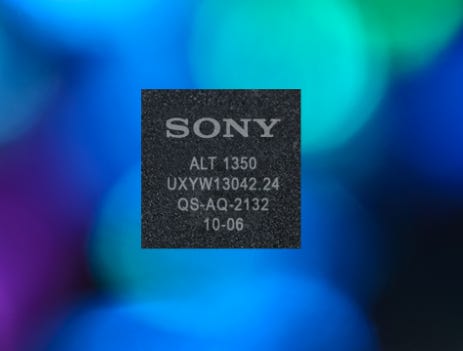
Semtech’s Sierra Wireless also used uses Sony’s Altair ALT1350 chipset for its latest HL Series LPWA module, the 5G HL7900, for the LPWA IoT market.
Other announcements made at MWC 2023:

- Quectel Wireless Solutions launched its ultra-wideband (UWB) automotive-grade AU30Q module. Based on Qurvo’s DW3300Q UWB chipset, the module enables real-time outdoor and indoor location and wireless communication, the company said.
- OriginGPS exhibited its GNSS modules, cellular IoT systems and new IoTracker series. GNSS modules and IoT products come equipped with a dashboard displaying multiple IoT devices on a map with configurable trip routes, location history per selected dates, and color-coding, the company said.
- HARMAN partnered with the American Center for Mobility (ACM) to test use cases of road-ready technologies, including Vehicle to Everything (V2X) enabled by roadside infrastructure and edge computing using 5G cellular.
- KORE launched its technology software MODGo, which provides a digital approach to IoT asset management. The software is designed to help organizations overcome the challenges of IoT implementation and management, the company said.
- NTT Docomo announced it will shut down its NB-IoT network, less than one year after launching.
- UnaBiz has partnered with The Things Industries to provide customers with a better experience for collecting IoT data and device heterogeneous fleet device management, the company said.
- Immersal Oy, part of Hexagon, announced the launch of Immersal City-Scale, a Visual Positioning System (VPS). This solution offers accuracy in outdoor location-based services for mobile network operators and their enterprise customers, the company said.
